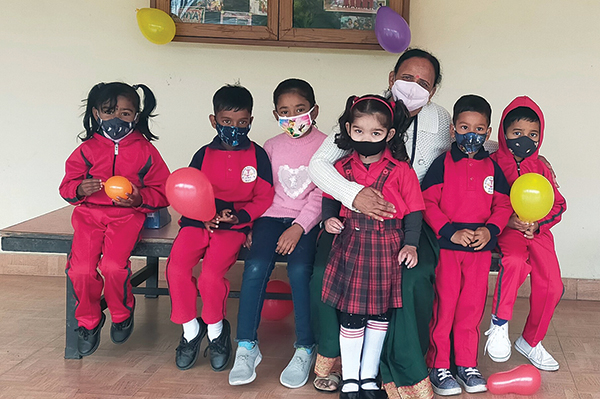Mixed emotions, warm ambience, bright smiles and deep regards for teachers, the students are now slowly, steadily and with hope of surety returning to schools.
With the pandemic hopefully at a decline for good, schools have reopened and this time allowing even the tiny tots to come for their pre-primary education whether at kindergarten schools in urban areas or the Aanganwaadi centers in the villages. The life has started vibrating in glory at the education institutions.
On campus too, where on one hand the students of different professional courses are rejoining, our tiny tots are bouncing towards Vidya School, a pre-primary facility for children of the staff and faculties of the Institute. After a hiatus of two academic sessions delivered online the “chalk board teaching” is back in action!
Another group that is enjoying this reopening is the group of children at Labour Basti on the campus. They too are optimistically albeit a little shyly coming to the Flying Birds School. This group did not even have access to online mechanism but our dedicated team ensured their engagement by adopting “classroom under the tree” method, letting the students stay engaged, informed and safe.
Both these extremes saw their own sets of ups and downs as far as the learning curve was concerned. In both these models, the students were those who would have held a pencil, read an alphabet, comprehended a sound to the object all for the first time. Yet the teaching group constantly upgraded, revised and redid their teaching methods just to be adaptable to the students’ needs.
We saw similar downfall in other marginalized groups as well in and around campus due to the pandemic. However with the little window of hope, RDI has made students ready for the tough times if they were to come again by distributing smart phones, tablets at individual level, and projector, screen, audio speakers at school level.
The pandemic cycle is uncertain but our experience has led us to be prepared to be flexible towards curriculum and pedagogy for the diversified range of children we reach out to. At no cost should learning be stopped.


